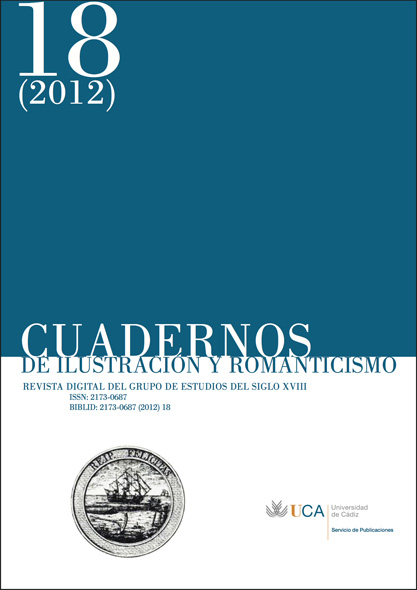Romanticism and the transatlantic imagination: Blanco White, Keats, and the Liberal DilemmaRomanticismo y la Imaginacion Transatlantico: Blanco White, Keats, y el Dilema Liberal

DOI
https://doi.org/10.25267/Cuad_Ilus_Romant.2012.i18.06Info
Abstract
This essay focuses on the role of Spanish America in the development of British romantic period literature, particularly in relation to that literature’s engagement with the political controversies surrounding Britain’s uneven development as both a world empire and a modern liberal state. By linking the histories and writings of these two geographies, particularly between the 1780 Peruvian revolt and the Spanish American independence movements (1817-1822), this project seeks to uncover the complex but largely ignored political and literary crossings triangulating between Britain, Spain, and Latin America during the early nineteenth century. In doing so, it reconstructs the transatlantic political and intellectual context for literary figurations of Spanish America in order to examine the historical dimensions that allowed British writers José María Blanco White and John Keats to imagine Latin America as both an important horizon of colonial desire and an object of liberal fantasies of independence and liberation.
Keywords
Downloads
How to Cite
License

This work is licensed under a Creative Commons Attribution-NonCommercial-NoDerivatives 4.0 International License.
The papers published in this journal are the property of Cuadernos de Ilustración y Romanticismo: the source must be cited whenever they are used.
The authors retain the copyright © and grant the journal the right to publish. They may host their work in the final published version on personal websites or websites intended for scientific dissemination, provided that they indicate the source.






